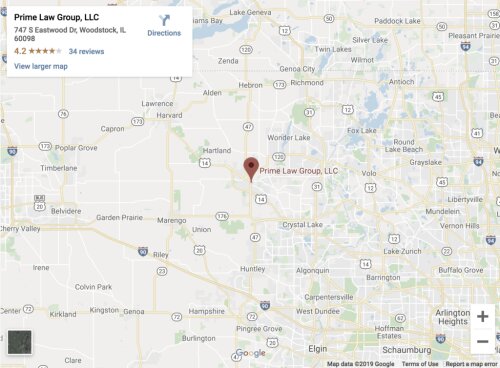Best Conveyancing Lawyers in Alabama
Share your needs with us, get contacted by law firms.
Free. Takes 2 min.
Free Guide to Hiring a Real Estate Lawyer
Or refine your search by selecting a city:
List of the best lawyers in Alabama, United States
About Conveyancing Law in Alabama, United States
Conveyancing refers to the legal process of transferring property ownership from one party to another. In Alabama, United States, conveyancing is a well-defined legal procedure that is integral to the purchase, sale, and inheritance of real estate. The process typically involves preparing, reviewing, and executing various legal documents, conducting property title searches, and ensuring that the transfer is recorded properly. Alabama conveyancing laws are designed to safeguard both buyers and sellers, and compliance with these laws is crucial for a valid and enforceable property transfer.
Why You May Need a Lawyer
Many people are unsure when they need legal help during the conveyancing process. Here are some common situations where hiring a lawyer can be essential:
- Reviewing or drafting sale and purchase agreements to ensure your interests are protected
- Conducting a detailed title search to uncover any liens, encumbrances, or disputes regarding the property
- Assisting with issues related to property boundaries or easements
- Managing transactions involving inherited property or divorces
- Navigating complex real estate matters, such as commercial transactions or multiple-owner situations
- Resolving disputes that arise during the transfer process, such as breach of contract or undisclosed problems with the property
- Ensuring that all local, state, and federal regulations are satisfied during the transaction
- Handling the closing process and attending to all required documents, filings, and payments
Local Laws Overview
Alabama conveyancing law is primarily governed by state statutes and local regulations. Here are some key aspects relevant to property transfers in Alabama:
- Deeds and Transfers: Alabama recognizes several types of deeds, including warranty deeds, quitclaim deeds, and special warranty deeds. The type of deed affects the protection offered to the buyer.
- Recording Requirements: All property transfers must be recorded with the county Probate Court in the county where the property is located to be legally valid against third parties.
- Title Searches: Before any transfer, a thorough title search is conducted to ensure clear ownership and find any encumbrances.
- Property Disclosure: Alabama is a “buyer beware” state, meaning sellers are not always required to disclose property defects. However, certain exceptions apply, especially if the buyer asks specific questions or in cases of fraud and misrepresentation.
- Homestead Exemptions: Alabama offers property tax exemptions for qualifying primary residences, and certain rights must be observed during transfer.
- Mortgage and Liens: Any outstanding mortgage or lien must be satisfied or properly handled before conveyance.
- Closing Process: Closings often take place at a law office and include careful review and execution of documents, disbursement of funds, and handling of recordings and payments.
Frequently Asked Questions
What is conveyancing, and why is it important?
Conveyancing is the legal process of transferring property ownership from one person or entity to another. It is important because it ensures the transaction is legally binding and that all legal requirements and due diligence are met.
Is it mandatory to hire a lawyer for conveyancing in Alabama?
While not always legally required, hiring a lawyer is highly recommended to protect your interests, address legal complexities, and ensure an enforceable and hassle-free property transfer.
What documents are needed for property conveyancing in Alabama?
Typical documents include the deed, purchase agreement, mortgage documents (if applicable), title search report, property disclosures, and closing statements.
What is a title search, and why is it necessary?
A title search is a review of public records to confirm the seller has legal ownership and to identify any liens, encumbrances, or claims against the property. It is crucial for ensuring you receive clear, marketable title.
How does the property closing process work in Alabama?
Closing involves a final review and signing of all documents, payment of the purchase price, settlement of mortgage balances or liens, recording the deed, and officially transferring ownership.
Can the buyer and seller use the same attorney?
It is generally advised that buyers and sellers have separate legal representation to avoid conflicts of interest, but both parties may choose to use the same attorney if they agree and are fully informed.
Are there taxes or fees associated with conveyancing?
Yes, conveyancing may involve transfer taxes, recording fees, title insurance premiums, and attorney fees, among others. It is important to clarify these costs before proceeding.
What happens if there is a dispute over property boundaries?
Boundary disputes may require a survey, negotiation, or legal proceedings. A lawyer can help resolve such issues and safeguard your property rights.
What if a lien or unpaid mortgage is discovered during the process?
All liens or mortgages must be satisfied or formally addressed before the property can be transferred. Your lawyer will work with lenders and other parties to resolve these issues.
What does "buyer beware" mean in Alabama real estate law?
"Buyer beware" means buyers are responsible for conducting their own due diligence. Sellers only have limited disclosure obligations unless they actively conceal defects or commit fraud.
Additional Resources
If you need more information or assistance with conveyancing in Alabama, consider the following resources:
- Alabama State Bar Association: Offers lawyer referral services and educational materials on real property law.
- Alabama Department of Revenue - Property Tax Division: Information about property tax laws, exemptions, and procedures.
- County Probate Courts: Responsible for recording property documents and providing records search access in each county.
- Consumer Protection Offices in Alabama: Can advise on fraud prevention and real estate transaction safety.
- Title Companies and Licensed Surveyors: Provide essential services during the conveyancing process.
Next Steps
If you are considering buying, selling, or transferring property in Alabama, it is wise to take the following actions:
- Gather all relevant information and documentation related to your property
- Contact a qualified real estate attorney with experience in Alabama conveyancing
- Request a consultation to discuss your specific needs and concerns
- Work closely with your attorney to conduct due diligence, review documents, and resolve any legal issues
- Follow through with all legal and regulatory requirements to ensure a smooth and secure transfer of ownership
Taking these steps will help protect your interests, reduce risks, and ensure that your conveyancing transaction in Alabama proceeds efficiently and lawfully.
Lawzana helps you find the best lawyers and law firms in Alabama through a curated and pre-screened list of qualified legal professionals. Our platform offers rankings and detailed profiles of attorneys and law firms, allowing you to compare based on practice areas, including Conveyancing, experience, and client feedback.
Each profile includes a description of the firm's areas of practice, client reviews, team members and partners, year of establishment, spoken languages, office locations, contact information, social media presence, and any published articles or resources. Most firms on our platform speak English and are experienced in both local and international legal matters.
Get a quote from top-rated law firms in Alabama, United States — quickly, securely, and without unnecessary hassle.
Disclaimer:
The information provided on this page is for general informational purposes only and does not constitute legal advice. While we strive to ensure the accuracy and relevance of the content, legal information may change over time, and interpretations of the law can vary. You should always consult with a qualified legal professional for advice specific to your situation.
We disclaim all liability for actions taken or not taken based on the content of this page. If you believe any information is incorrect or outdated, please contact us, and we will review and update it where appropriate.
Browse conveyancing law firms by city in Alabama
Refine your search by selecting a city.














